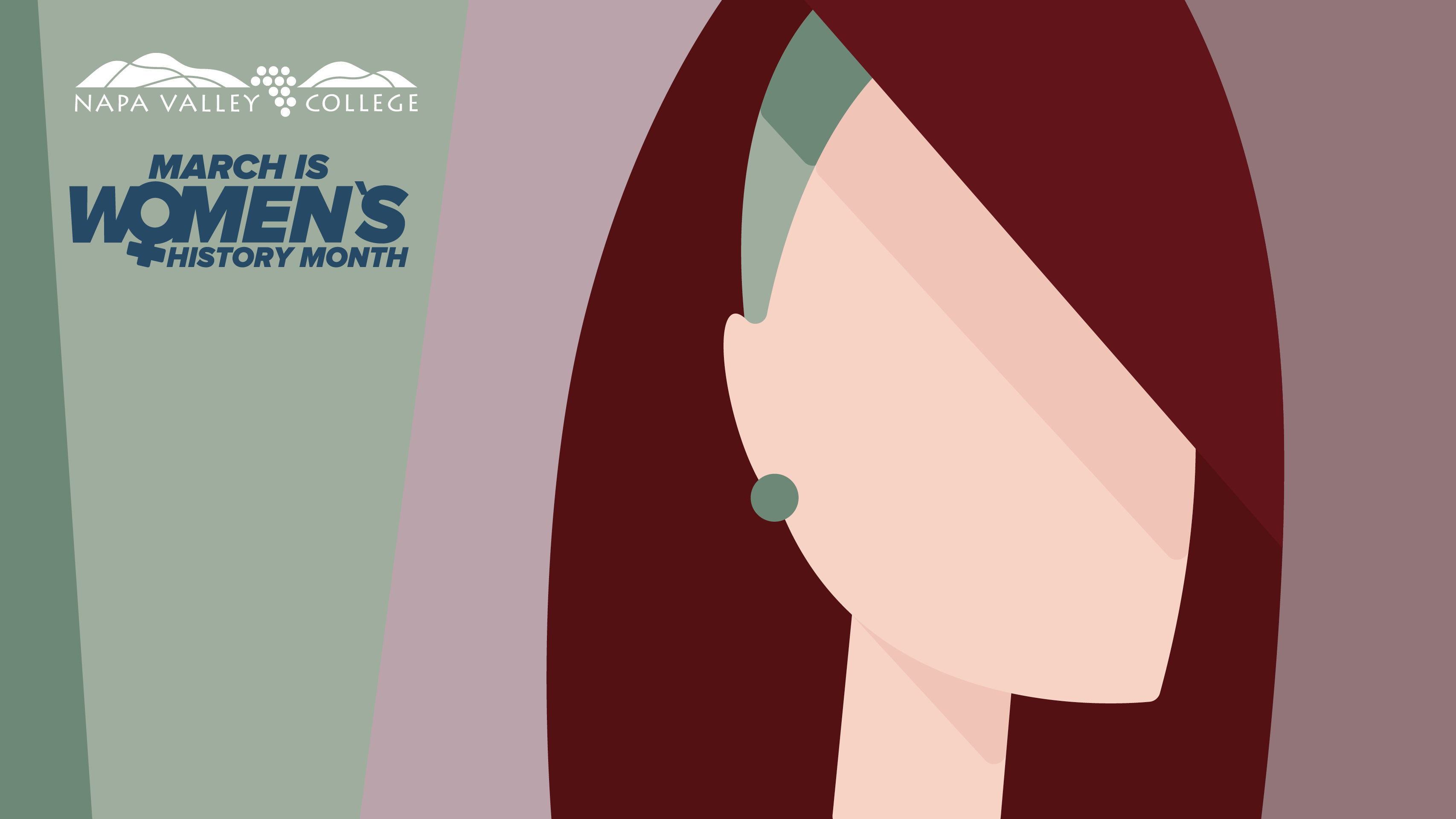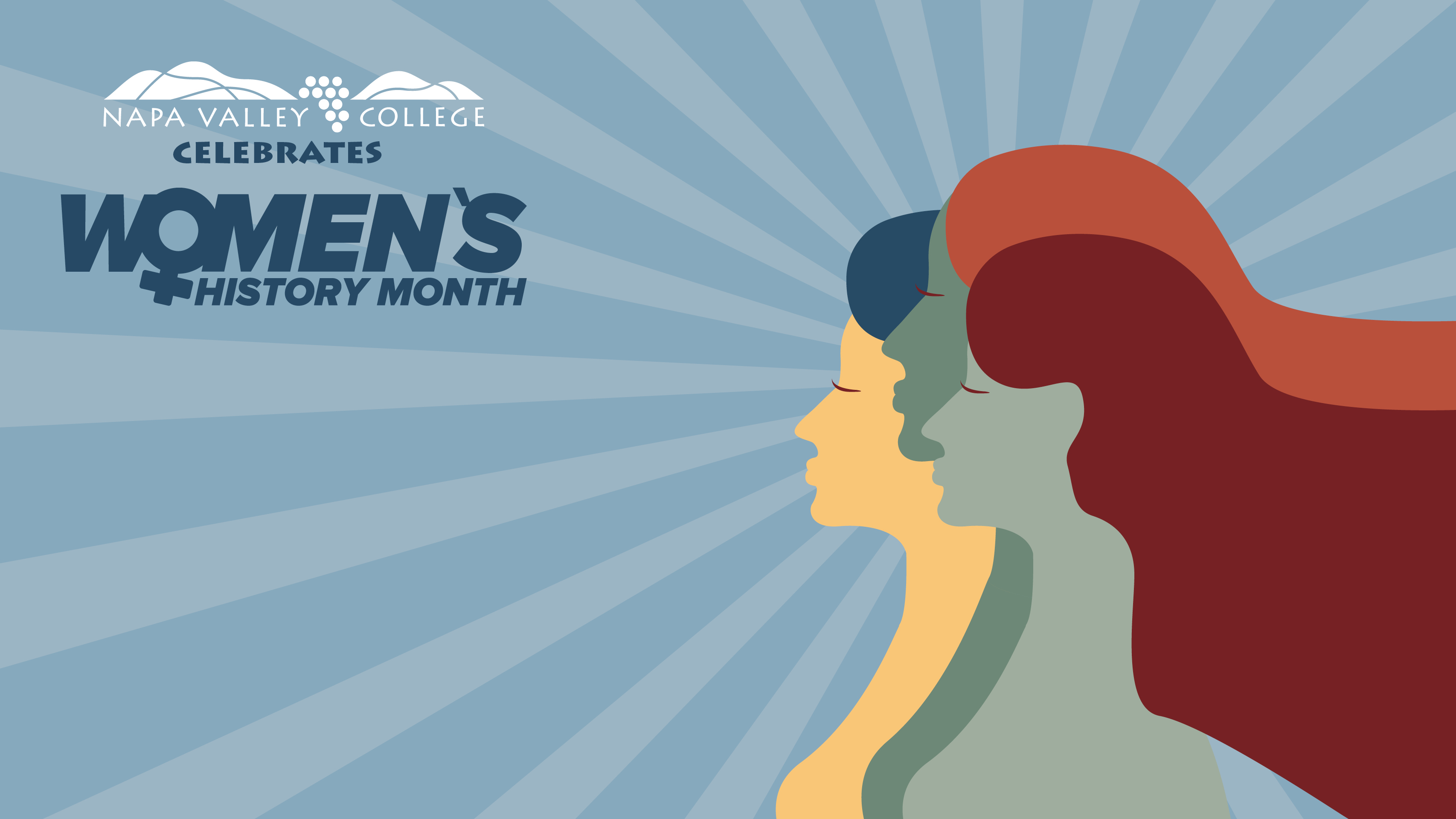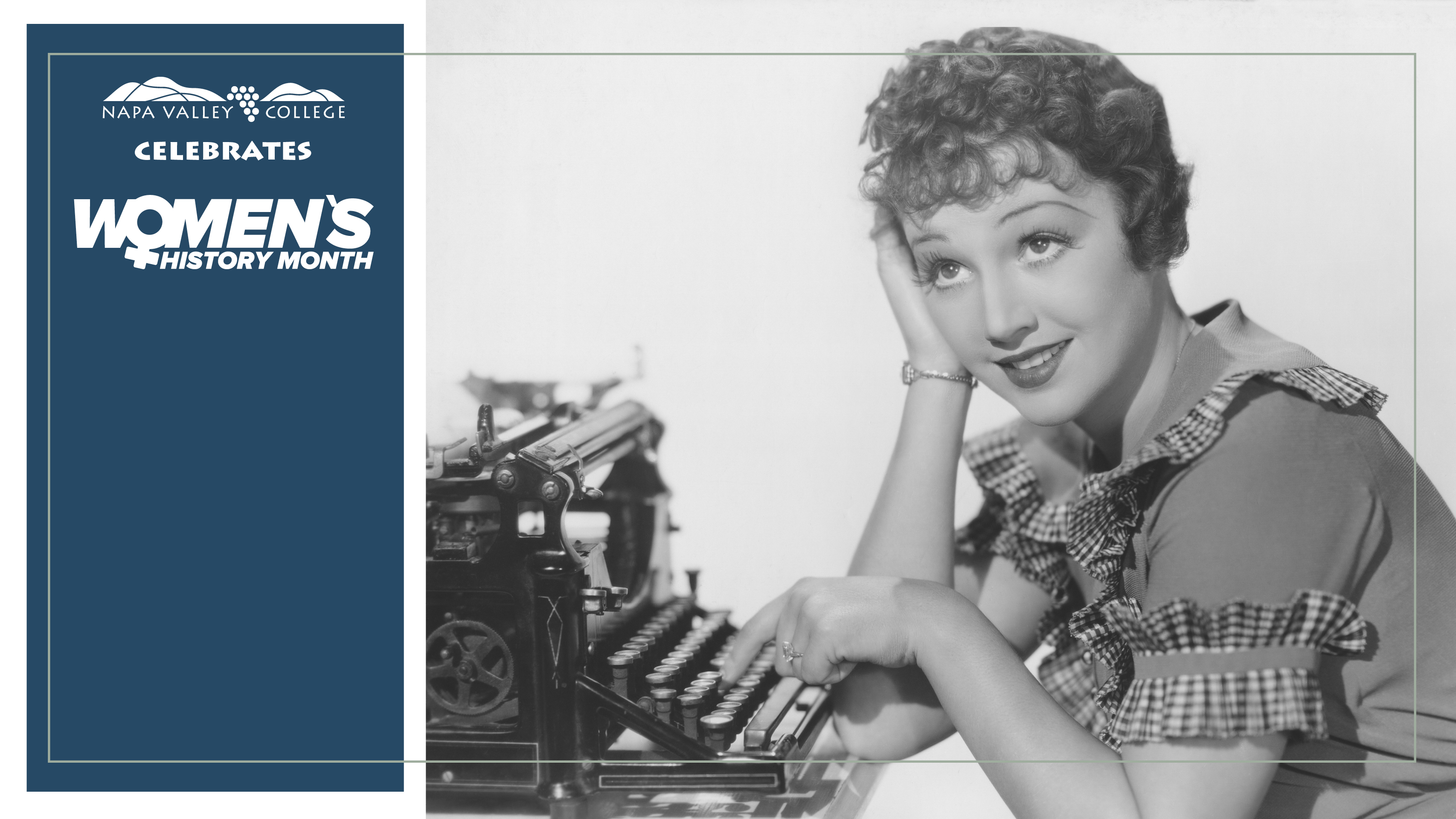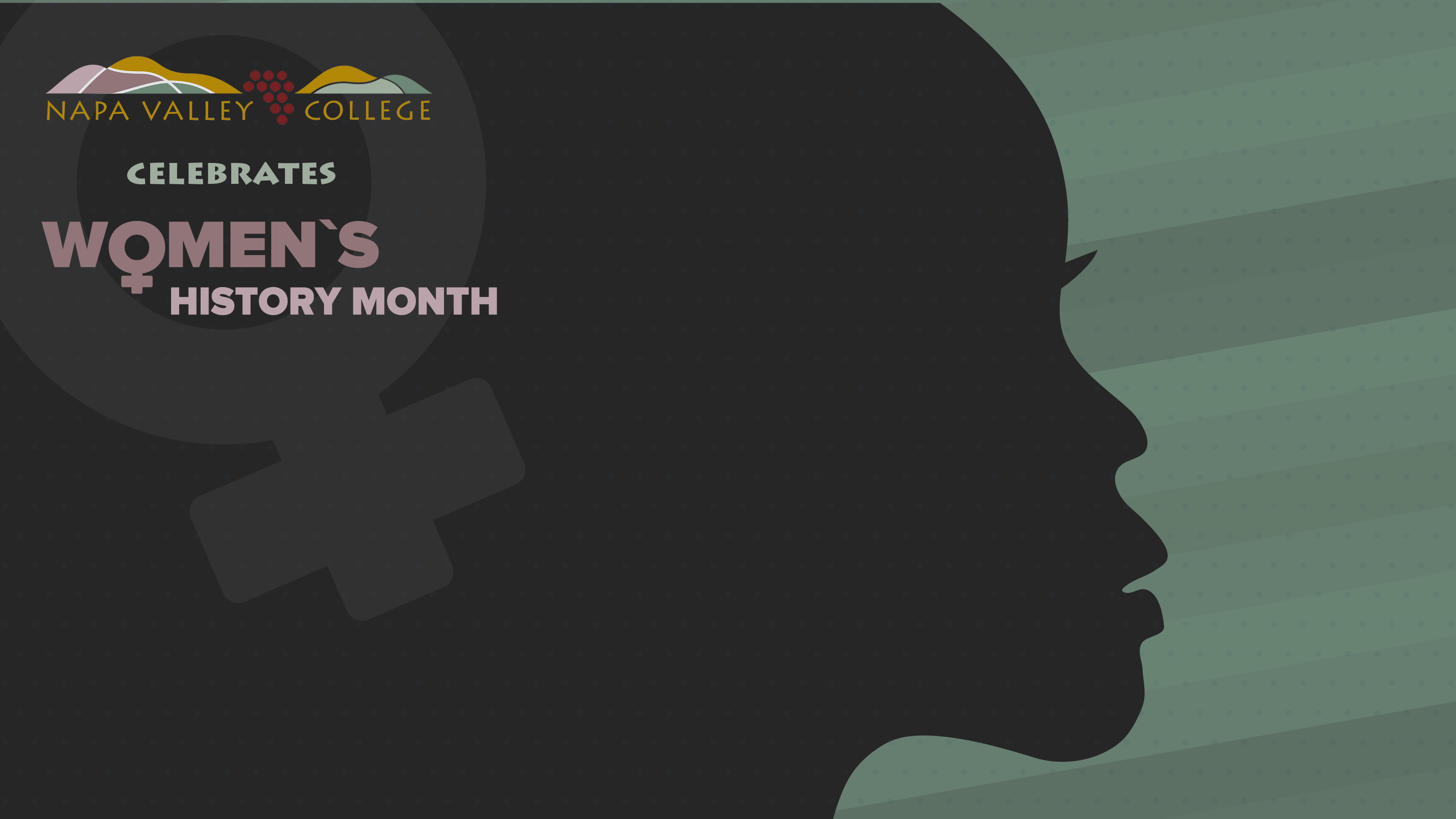Women's History Month
Dear Colleagues,
During March, we celebrate and recognize the important contributions that women make to the cultural, social, economic, and political landscape of our nation.
Did you know that an extended period of celebration of women's contributions to American history was first conceived in our neck of the woods? According to the National Women's History Museum,
"Women's History Month began as a local celebration in Santa Rosa, California. The Education Task Force of the Sonoma County (California) Commission on the Status of Women planned and executed a "Women's History Week" celebration in 1978. The organizers selected the week of March 8 to correspond with International Women's Day. The movement spread across the country as other communities initiated their own Women's History Week celebrations the following year."
"In 1980, a consortium of women's groups and historians—led by the National Women's History Project (now the National Women's History Alliance)—successfully lobbied for national recognition. In February 1980, President Jimmy Carter issued the first Presidential Proclamation declaring the Week of March 8th 1980 as National Women's History Week."
The week-long celebration was extended to a month in 1987, when Congress passed a law designating March as Women's History Month.
An early advocate of women's rights in the United States was Sojourner Truth. Sojourner Truth was born Isabella Baumfree in 1797 in Ulster County, New York, the daughter of James and Elizabeth Baumfree. Together with her parents, she spent her childhood enslaved on the estate of Johannes, then later Charles, Hardenbergh. Enslaved by Dutch settlers, Dutch was her first language. At the age of nine years old, Isabella was sold away from her parents to become the property of John Neely, then was sold again at the age of 11 to a tavern keeper, and again sold at the age of 13 where she was enslaved to John Dumont. At the age of 29, she escaped to freedom, became a devout Christian, changed her name to Sojourner Truth and began touring the country, speaking out against the institution of slavery along with other abolitionists, among them her peer, Frederick Douglass. Sojourner Truth brought her experience as a woman, a mother, a laborer, and a business woman to her work as an abolitionist.
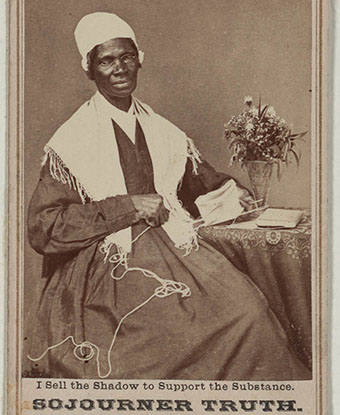
 Sojourner Truth delivered her famous speech, "Ain't I a Woman?" at the Ohio Women's
Rights Convention in Akron in May 1851. This speech exemplifies the intersectionality
of her identity as a woman and as a person of African origin. The content of her
speech argues for the rights of women in a patriarchal and racist society. Woven
throughout her speech is the acknowledgement of her strength, her brutalization as
an enslaved woman, and her deeply held belief that women deserved rights. Because
this speech predated recording technology, and because Sojourner Truth was unable
to read and write, what we know of her speech is based upon transcriptions created
by witnesses at the convention.
Sojourner Truth delivered her famous speech, "Ain't I a Woman?" at the Ohio Women's
Rights Convention in Akron in May 1851. This speech exemplifies the intersectionality
of her identity as a woman and as a person of African origin. The content of her
speech argues for the rights of women in a patriarchal and racist society. Woven
throughout her speech is the acknowledgement of her strength, her brutalization as
an enslaved woman, and her deeply held belief that women deserved rights. Because
this speech predated recording technology, and because Sojourner Truth was unable
to read and write, what we know of her speech is based upon transcriptions created
by witnesses at the convention.
Below are links to two performed versions of her speech. One version of the speech, published in the Anti-Slavery Bugle by her friend Rev. Marcus Robinson, is recited by the Afro-Dutch musician and actress, Denise Jannah, as part of a project to render what Sojourner Truth might have actually sounded like given that her first language was Dutch (The Sojourner Truth Project). The second version of her speech, published twelve years later by Frances Gage, is recited by the novelist, essayist, and poet, Alice Walker. This version of the speech, which scholars agree was an embellished version, imposed upon Sojourner Truth a southern US, Black vernacular and poetic flourishes that were in keeping with popular depictions of African American culture circulating at that time. The text of the two versions of her speech is attached.
Version 1: Recited by Denise Jannah
"Women Rights Convention. Sojourner Truth." Anti-Slavery Bugle, Salem, Ohio, June 21, 1851 - Marcus Robinson
One of the most unique and interesting speeches of the convention was made by Sojourner Truth, an emancipated slave. It is impossible to transfer it to paper, or convey any adequate idea of the effect it produced upon the audience. Those only can appreciate it who saw her powerful form, her whole-souled, earnest gesture, and listened to her strong and truthful tones. She came forward to the platform and addressing the President said with great simplicity: "May I say a few words?" Receiving an affirmative answer, she proceeded:
I want to say a few words about this matter. I am a woman's rights. I have as much muscle as any man, and can do as much work as any man. I have plowed and reaped and husked and chopped and mowed, and can any man do more than that? I have heard much about the sexes being equal. I can carry as much as any man, and can eat as much too, if I can get it. I am as strong as any man that is now.
As for intellect, all I can say is, if a woman have a pint, and a man a quart -- why can't she have her little pint full? You need not be afraid to give us our rights for fear we will take too much, -- for we can't take more than our pint'll hold. The poor men seems to be all in confusion, and don't know what to do. Why children, if you have woman's rights, give it to her and you will feel better. You will have your own rights, and they won't be so much trouble.
I can't read, but I can hear. I have heard the bible and have learned that Eve caused man to sin. Well, if woman upset the world, do give her a chance to set it right side up again. The Lady has spoken about Jesus, how he never spurned woman from him, and she was right. When Lazarus died, Mary and Martha came to him with faith and love and besought him to raise their brother. And Jesus wept and Lazarus came forth. And how came Jesus into the world? Through God who created him and the woman who bore him. Man, where was your part? But the women are coming up blessed be God and a few of the men are coming up with them. But man is in a tight place, the poor slave is on him, woman is coming on him, he is surely between a hawk and a buzzard.
Version 2: Recited by Alice Walker
National Anti-Slavery Standard, May 2, 1863 - Frances Gage
"Well, chillen, what dar's so much racket dar must be som'ting out o'kilter. I tink dat 'twixt de [negroes] of de South and de women at de Norf, all a-talking 'bout rights, de white men will be in a fix pretty soon. But what's all this here talking 'bout? Dat man ober dar say dat woman needs to be helped into carriages, and lifted ober ditches, and to have de best place eberywhar. Nobody eber helps me into carriages, or ober mud-puddles, or gives me any best place,"; and, raising herself to her full height, and her voice to a pitch like rolling thunder, she asked, "And ar'n't I a woman? Look at me. Look at my arm," and she bared her right arm to the shoulder, showing its tremendous muscular power. "I have plowed and planted and gathered into barns, and no man could head me--and ar'n't I a woman? I could work as much and eat as much as a man (when I could get it) and bear de lash as well--and ar'n't I a woman? I have borne thirteen children, and seen 'em mos' all sold off to slavery, and when I cried out with a mother's grief, none but Jesus heard--and ar'n't I a woman? Den dey talks 'bout dis ting in de head. What dis dey call it" "Intellect," whispered some one near. "Dat's it, honey. What's dat got to do with woman's rights or [negroes'] rights? If my cup won't hold but a pint, and yourn holds a quart, wouldn't ye be mean not to let me have my little half-measure full?" and she pointed her significant finger and sent a keen glance at the minister who had made the argument. The cheering was long and loud. "Den dat little man in black dar, he say woman can't have as much rights as man, 'cause Christ wa'n'n't a woman. Whar did your Christ come from??
Rolling thunder could not have stilled that crowd as did those deep, wonderful tones, as she stood there with outstretched arms and eye of fire. Raising her voice still louder, she repeated,--
"Whar did your Christ come from? From God and a woman! Man had not'ing to do with him." Oh, what a rebuke she gave the little man. Turning again to another objector, she took up the defence of Mother Eve. I cannot follow her through it all. It was pointed and witty and solemn, eliciting at almost every sentence defeaning [sic] applause, and she ended by asserting: "that if de fust woman God ever made was strong enough to turn de world upside down all her one lone, all dese togeder," and she glanced her eye over us, "ought to be able to turn it back, and git it right side up again, and now dey is asking to, de men better let 'em." (long and continued cheering). "Bleeged to ye for hearin' on me, and now ole Sojourner ha'n't got nothing more to say."
As we celebrate Women's History Month at Napa Valley College, I encourage you to consider the many women who fought for women's rights, and to attend guest lectures organized by the Cultural Center and NVC Learning Communities, visit the library's displays and LibGuide, upload one of the attached Zoom backgrounds produced by the Office of Public Affairs and Communication, and educate yourselves about the rich, multi-ethnic, and varied history of women's advocacy and leadership.
Regards,
Dr. Patricia van Leeuwaarde Moonsammy
Senior Director, Diversity, Equity, and Inclusion
Downloadable Zoom Backgrounds
Below are some high quality Zoom backgrounds you can download. Just right click them, and save them to your computer.
